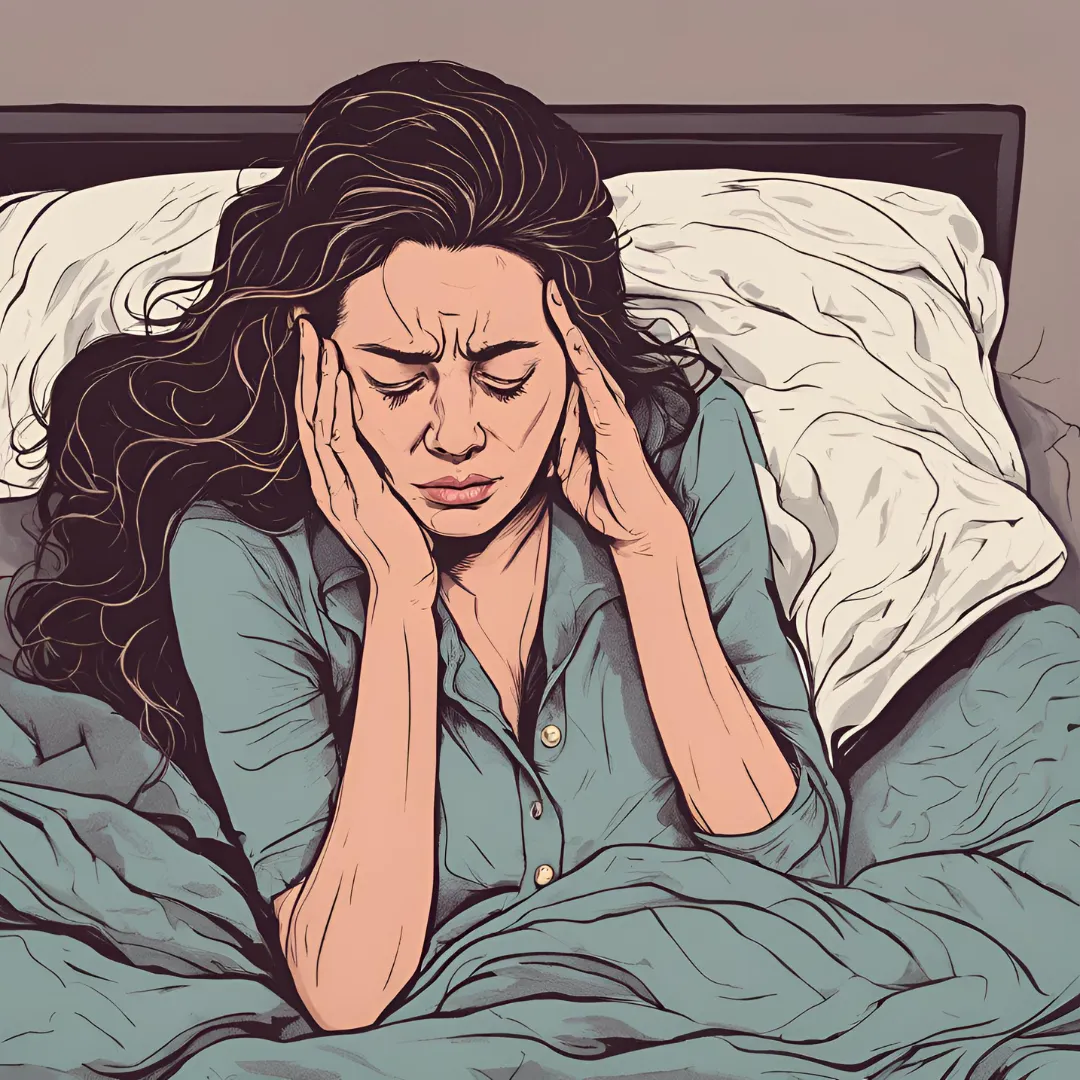Enhancing Your Sleep for Better Health: Natural Remedies and Supplements
Your Guide to Herbs, Vitamins, and Lifestyle Tips for Restful Nights

Sleep is one of the building blocks of good health, yet many people find it challenging to clock in the recommended seven to nine hours each night. Chronic lack of sleep can lead to a host of health problems, from weakened immunity to weight gain, mood swings, and a higher risk of chronic conditions like heart disease and diabetes. Luckily, natural remedies, including herbs, vitamins, and lifestyle adjustments, can help improve the quality of your sleep. Let’s dive into these options and explore the science behind them.
Why Sleep Matters
Sleep isn’t just about feeling rested—it’s crucial for both your body and mind. During sleep, your body repairs tissues, consolidates memories, and balances hormones. Skimping on sleep disrupts these processes, leading to cognitive issues, mood problems, and a weaker immune system. Over time, not getting enough sleep can increase your risk for obesity, diabetes, heart disease, and even certain types of cancer.
Herbs That Help You Sleep Better
Several herbs have been trusted for generations to help with relaxation and sleep. These natural remedies work by calming the nervous system, reducing stress, and making it easier to drift off.
1. Valerian Root:
Valerian root has been used for centuries to treat insomnia and anxiety. Research suggests it may boost levels of gamma-aminobutyric acid (GABA) in the brain, a neurotransmitter that helps you relax. A review in the American Journal of Medicine found that valerian root can improve sleep quality and help you fall asleep faster.

2. Chamomile:
Chamomile is well-known for its calming effects. It contains an antioxidant called apigenin, which binds to receptors in the brain to reduce anxiety and promote sleep. A study in Phytomedicine showed that chamomile extract significantly improved sleep quality in people struggling with insomnia.
3. Lavender:
Often used in aromatherapy, lavender is another herb known for its relaxing properties. Inhaling lavender essential oil has been shown to lower heart rate and blood pressure, creating a calm state that’s perfect for sleep. Research in Evidence-Based Complementary and Alternative Medicine found that lavender aromatherapy improved sleep quality in those with mild insomnia.
Vitamins and Minerals That Support Sleep
In addition to herbs, certain vitamins and minerals play a big role in how well you sleep. Not getting enough of these nutrients can lead to sleep problems, so it’s important to keep your levels in check.
1. Magnesium:
Magnesium helps your muscles relax and supports nerve function, both of which are important for good sleep. It also helps regulate melatonin, the hormone that controls your sleep-wake cycle. A study in the Journal of Research in Medical Sciences found that magnesium supplements improved sleep quality in older adults with insomnia.
2. Vitamin D:
While it’s often associated with bone health, vitamin D also impacts your sleep. Research suggests that vitamin D receptors in the brain help regulate sleep, and low levels of this vitamin have been linked to sleep disorders. A study in the Journal of Clinical Sleep Medicine found that vitamin D supplementation improved sleep duration and quality.
3. Melatonin:
Although it’s not a vitamin or mineral, melatonin is a hormone that plays a key role in regulating your sleep-wake cycle. Melatonin supplements are commonly used to treat sleep disorders, especially insomnia and jet lag. A review in PLOS One confirmed that melatonin supplements can help you fall asleep faster and improve overall sleep quality.
Lifestyle Tips for a Better Night’s Sleep
Alongside natural supplements, making a few lifestyle changes can go a long way in improving your sleep. Here are some tips:
• Stick to a Sleep Schedule: Going to bed and waking up at the same time every day helps regulate your body’s internal clock, making it easier to fall asleep and wake up naturally.
• Create a Relaxing Bedtime Routine: Engage in calming activities before bed, like reading, meditating, or taking a warm bath. These habits signal to your body that it’s time to wind down.
• Limit Blue Light Exposure: Blue light from screens can mess with melatonin production. Try to reduce screen time an hour before bed or use blue light filters.
• Cut Back on Stimulants: Caffeine and nicotine can keep you awake, especially if you consume them in the afternoon or evening. Try to avoid these stimulants later in the day.
Wrapping It Up
Getting enough sleep is crucial for your overall health and well-being. By incorporating natural herbs, vitamins, and minerals into your routine, along with adopting healthy sleep habits, you can significantly improve the quality and length of your sleep. While these natural remedies can be effective, it’s always a good idea to check with a healthcare professional before starting any new supplement, especially if you have existing health conditions or take medications.
References
1. Bent, S., Padula, A., Moore, D., Patterson, M., & Mehling, W. (2006). Valerian for sleep: A systematic review and meta-analysis. American Journal of Medicine, 119(12), 1005-1012.
2. Zick, S. M., Wright, B. D., & Gillespie, B. (2011). The effect of chamomile tea on sleep quality among postpartum women: A randomized controlled trial. Phytomedicine, 18(9), 731-736.
3. Chien, L. W., Cheng, S. L., & Liu, C. F. (2012). The effect of lavender aromatherapy on autonomic nervous system in midlife women with insomnia. Evidence-Based Complementary and Alternative Medicine, 2012, 740813.
4. Abbasi, B., Kimiagar, M., Sadeghniiat-Haghighi, K., Shirazi, M. M., & Hedayati, M. (2012). The effect of magnesium supplementation on primary insomnia in elderly: A double-blind placebo-controlled clinical trial. Journal of Research in Medical Sciences, 17(12), 1161-1169.
5. McCarty, D. E., Chesson, A. L., Jr., Jain, S. K., & Marino, A. A. (2012). The link between vitamin D metabolism and sleep: A systematic review. Journal of Clinical Sleep Medicine, 8(6), 693-700.
6. Ferracioli-Oda, E., Qawasmi, A., & Bloch, M. H. (2013). Meta-analysis: Melatonin for the treatment of primary sleep disorders. PLOS One, 8(5), e63773.